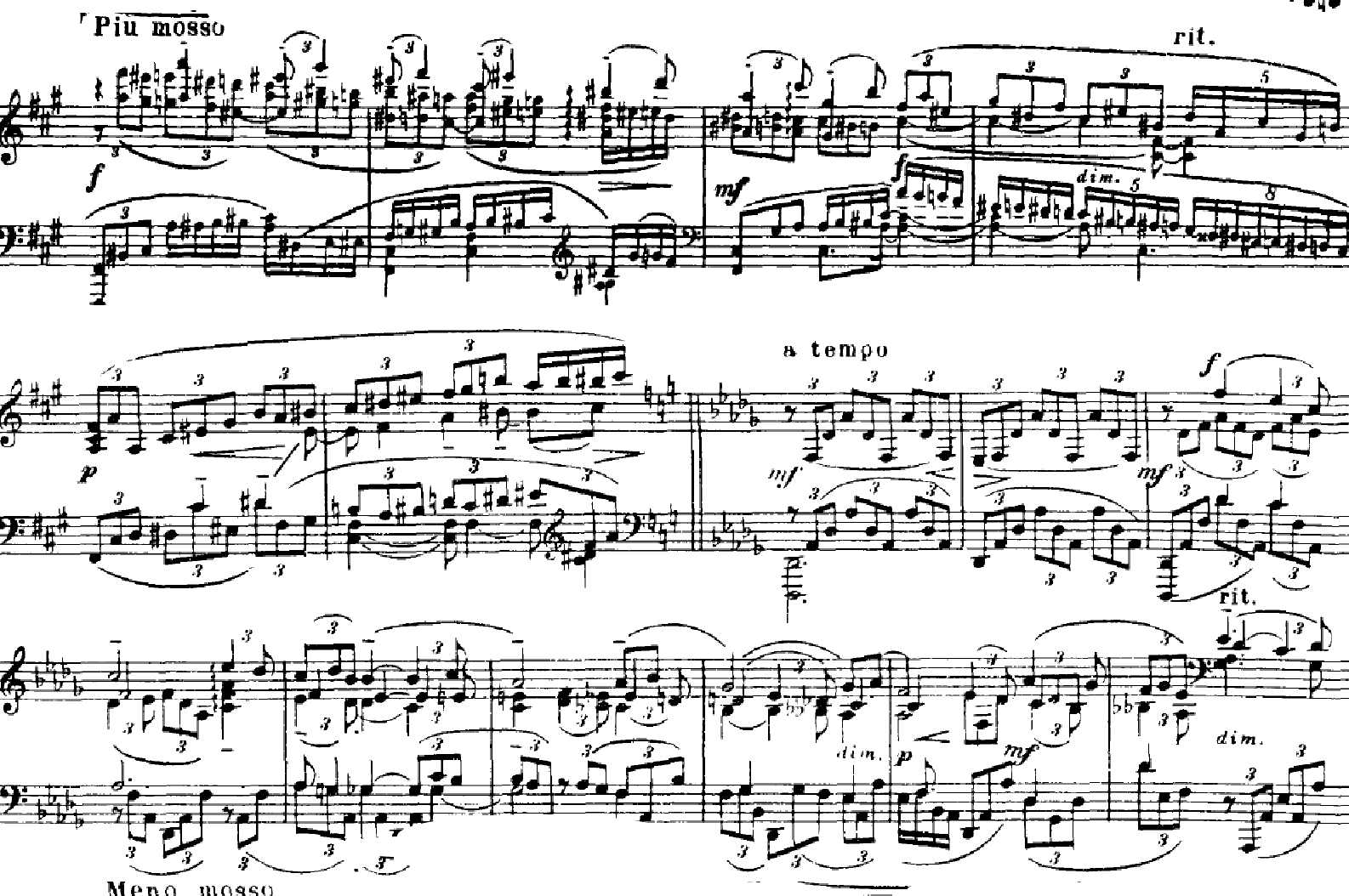(or, "Lessons from Zenn-la")
Can you play this? The kid next door might be able to. The real question is, will you take the time to listen?
Not long ago our composer extraordinaire Andre Gribou was telling me about life at Julliard decades ago. He recalled conversations on Manhattan sidewalks outside the practice rooms. "We used to marvel at the stories of superstar students playing Rachmanioff's 3rd for Spring recital," he said, recalling the slow, respectful nods that such rare ambition and skill garnered. Then his mental DeLorean skidded to a stop back in the present. "But now, a conservatory kid's not even regarded as a beginner piano player if he can't play the Chopin Polonaises by senior year in high school. It's hard to believe how much of the elite repertoire isn't a big deal anymore."
But the obvious thing not being said to each other--the unspoken paradox--is this: it is a big deal. What was once extraordinary and rare is now commonplace. Millions, or in this case at least thousands, of people can do the same thing.
Roger Bannister's mile run under four minutes transformed what people thought could be accomplished on the track. Humanity didn't change; belief in what humanity could do changed. It may not be ordinary for an elite athlete to run a mile is less than four minutes, but it's certainly not extraordinary. It happens all the time.
There are lists of examples here, lists long enough to provoke profound feelings of inferiority if a person isn't grounded in deeper meaning. Athletes, adventurers, musicians, performers, academics: excellence isn't hard to find. In fact, excellence in so many fields is so abundant that the economic bottom has fallen out of a myriad of occupations, with supply greatly outstripping demand. Sure, the music industry tanked because The Web demolished traditional distribution and business models for making money. But I'm convinced the real reason is that The Web suddenly made worldwide access available to millions of extremely accomplished players who might never had a way to reach new audiences. Same goes for software design. A million apps? Why do you think so many are only 99 cents? Excellence is everywhere.
The dilemma of abundant excellence is a Gordian Knot. To untangle it, to go back to an era where infinite information was not available as a source of widespread inspiration clearly makes no sense. Yet to swim in a sea of endless excellence can dull our senses about quality, about relative effort, about values. When every meal tastes like the works of a gourmet chef, do we ever consider the complex realities of food production? When anything we desire can be purchased with a finger tapping a glowing checkout button on a tablet, delivered straight to our door in just two days, do we ever feel excited or satisfied to earn something hard to acquire? Is a billion dollar IPO something to applaud? It'd be nice, there's no doubt. It's hard to do, too--a truism given heft by the scarcity of it's reproduction. But when achievements become little more than just a means for keeping score, it's hard to know where to find deep, personal value.
In the origin stories of the now celebrated The Silver Surfer (yes, a comic book character, but an exceedingly clever bit of American literary legerdemain), we come to learn about his life before he acquired his "power cosmic". An almost ordinary citizen on a highly advanced planet far, far away, he began to wonder if there was more to life than simply being satisfied. Norrin Radd's (his birth name) home world had evolved to such an astoundingly advanced state that no one needed to work any more. No one labored unnecessarily, no one went hungry, or cold, or uneducated. Even the automation systems of the world maintained themselves; the need for ambition disappeared because excellence was everywhere.
This is something of an inside-out world from our own. Now surrounded by extraordinary excellence at all turns, the forces of dismal economics pushes down the potentials for ordinary stability, comfort, even growth. Sure, everyone can now do amazing things, all the time, but the cost is profound. Even the art of conversation has largely faded as we feel endless pressure to check off one more detail on our to-do lists, make one more virtual connection, post one more update. It's ironic, but our cultural sensitivities have not progressed to keep pace with our technological abilities. With countless hard working kids now successfully playing Rachmaninoff's 3rd Piano Concerto, do we even appreciate the music? Do we willingly give ourselves the time to absorb it, consider it, enjoy it without also doing something else while it plays in the background? Is achievement now a contact sport in much the same way that counting friends on Facebook has become the new normal of social engagement?
I wonder. It's too simple to declare that the train should simply slow down, that walks in the meadows along side the tracks are just as satisfying as reaching distant destinations down the rails. But the paradox of abundance pulls in opposite directions. Like Norrin Radd, we risk our own cultural decline by losing all sense of joy in extraordinary things because we take them as ordinary. Like automatons racing to our own worn out decrepitude, we risk profound loss of meaning by pressing for endless achievements without deeply appreciating the merits of those endeavors.
--MS
PS -- Let's just see a quick show of hands (or better yet Tweet! @michaelstarobin): anyone catch that Zenn-la name-check right off the top? Send a quick shout out if you knew the reference.
PPS -- You can follow us on Facebook (ironic, isn't it?) at facebook.com/1auglobalmedia You can also follow me on Twitter @michaelstarobin

